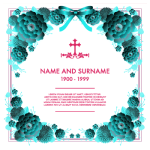
The Importance of a Death Certificate Translator: Where to Find One
When dealing with the loss of a loved one, navigating the administrative process can be overwhelming. One essential aspect of this process is ensuring that all necessary documents, including the death certificate, are accurately translated if needed. This is where death translators come into play. Finding a reliable and qualified death certificate translator can make a significant difference in ensuring that all legal and official documents are correctly interpreted. In this blog post, we will explore the importance of death translators, where to find them, and what to consider when selecting one for your needs.
Understanding the Role of Death Translators
Death translators serve a critical function in the realm of legal and administrative proceedings following a person’s passing. These skilled professionals are tasked with the translation of death certificates and ancillary documents from the original language to another, ensuring clarity and accuracy in communication. Their expertise is especially vital in contexts where documents must cross linguistic barriers to fulfill legal requirements, support estate settlements, or facilitate insurance and immigration processes. A death certificate translator who holds certification brings a layer of credibility and reliability to the translation, aligning it with the stringent standards mandated by various official entities. Their role is not merely linguistic but also deeply intertwined with navigating the complexities of legal terminologies and cultural nuances, making their work indispensable for families and legal professionals alike. By ensuring that every detail is faithfully rendered in the target language, death translators eliminate potential obstacles that could impede the timely resolution of the deceased’s affairs, reinforcing the importance of their specialized skill set in bridging linguistic divides in critical moments.

The Importance of Accurate Death Certificate Translations
Navigating through the administrative aftermath of a loved one’s departure requires meticulous attention to detail, particularly in the translation of death certificates. These documents serve as foundational pillars in various legal, financial, and governmental procedures, making accuracy in their translation paramount. Mistakes or misinterpretations in translating a death certificate can introduce complications, such as obstructed legal proceedings or hindered access to entitled benefits, creating additional stress during a time of mourning. It is not just about converting words from one language to another; it’s about preserving the integrity of vital information that dictates the deceased’s identity and cause of death. Ensuring precise translation facilitates smoother interactions with institutions across borders, be it for estate claims, insurance purposes, or immigration records. This precision supports the grieving family by safeguarding against unnecessary delays or disputes that could arise from inaccuracies. Therefore, entrusting this task to a competent death certificate translator is a step towards honoring the deceased’s legacy with dignity, ensuring their affairs are managed with the respect and attention to detail they deserve.
Where to Look for Qualified Death Certificate Translators
Initiating your search for a qualified death certificate translator requires tapping into various resources dedicated to professional translation services. A fruitful starting point is to engage with reputable translation agencies that offer a spectrum of legal translation services, including those skilled in handling death certificates. These agencies are likely to have professionals who specialize in the nuanced field of death translation, ensuring accuracy and reliability. Another effective strategy is to explore professional associations related to translation services, such as the American Translators Association, which can provide referrals and recommendations for certified death translators. These organizations uphold high standards of professionalism and competence, offering a directory of members with the necessary credentials and experience. For a more direct approach, online marketplaces and forums dedicated to translation services, such as ProZ and TranslatorsCafe, provide platforms where individual translators showcase their expertise, certifications, and areas of specialization. These websites allow you to directly contact translators, review their profiles, and assess their fit for your specific needs. By leveraging these resources, you can navigate the selection process with a clearer understanding of the qualifications and experiences necessary for a translator to competently handle the sensitive task of death certificate translation.

Evaluating a Death Translator’s Credentials
Selecting a proficient death certificate translator requires careful assessment of their professional background. It’s crucial to ensure that they possess the necessary certification in translation, emphasizing their capability to manage legal documents with the utmost precision. An ideal candidate should have a track record of working with death certificates, showcasing their ability to navigate the intricacies of such sensitive translations. Requesting work samples and references provides insight into their previous successes and the quality of work they can deliver. It’s also imperative to confirm the translator’s expertise in the legal and cultural nuances present in both the source and target languages of the death certificate. This involves inquiring about their experience with the specific legal terms and conditions that pertain to death documentation in the respective countries. Understanding their approach to translating and certifying documents can also offer a glimpse into how they maintain accuracy and authenticity throughout the process. This careful evaluation helps in making an informed decision, ensuring that the chosen translator is best suited to handle the delicate task of translating a death certificate accurately and respectfully.
The Process of Translating a Death Certificate
The journey of translating a death certificate begins with an initial assessment by the translator to fully grasp the document’s details and its broader context. This step is critical to ensure that the translation will accurately reflect the original content’s intent and legal nuances. Following this, the translator proceeds to meticulously convert the text from the source language to the target language. This stage demands a high level of precision to maintain the integrity of the original document’s information, including personal details, causes of death, and other sensitive data.
After the translation is drafted, it undergoes a thorough review process, often involving a second, equally qualified translator. This review phase is aimed at guaranteeing the translation’s quality and accuracy, ensuring that no detail has been misunderstood or misrepresented. Mistakes at this stage could lead to significant issues in legal and administrative processes for the deceased’s family, making this step of verification especially crucial.
The final step in the process is the certification of the translated document. The translator officially certifies that the translated version is a true and faithful representation of the original document. This certification is vital, as it validates the document for use in official capacities, whether it be for legal matters, estate settlements, or immigration purposes. Throughout this process, the translator must balance a deep understanding of linguistic nuances with the requisite legal knowledge to produce a document that meets all required standards and purposes.
Common Challenges and How to Overcome Them
Navigating the complexities of death certificate translation involves addressing various challenges, each with its unique implications for the accuracy and acceptance of the document. One such challenge is the dense legal jargon often found in these certificates, which may not have direct equivalents in the target language. To address this, engaging a translator with specialized legal knowledge and experience in handling similar documents is crucial. They can accurately interpret and convey the meaning of these terms, ensuring the translation’s legality and validity.
Cultural nuances also play a significant role, as certain phrases or terminologies might carry different connotations across languages. A skilled translator will recognize these subtleties and adjust the translation accordingly to maintain the document’s integrity and respect for the deceased and their family. This sensitivity to cultural contexts underlines the importance of a translator’s familiarity with both the source and target cultures.
Handling sensitive information, such as the cause of death, requires a delicate balance between accuracy and respectfulness. Here, transparency and communication with the translator are key. Providing them with all necessary information and context, while expressing any particular concerns or preferences you might have, allows for a more tailored and appropriate translation.
Lastly, the challenge of ensuring that the translated document meets the official requirements of the intended country or institution can be mitigated by selecting a translator who is versed in the certification standards and procedures of both the source and target locales. This knowledge is imperative to facilitate a smooth and unimpeded acceptance of the document for all legal and administrative purposes.
The Future of Death Certificate Translation
As we move forward, the need for specialized death certificate translation services is poised to increase, paralleling global interconnectedness. The evolution of digital platforms offers unprecedented ease in finding and vetting qualified translators, highlighting the significance of selecting professionals who meet the highest standards of accuracy and cultural sensitivity. The progression in technology, coupled with a deeper understanding of the complexities involved in these translations, promises enhancements in both efficiency and quality. Innovations, such as AI and machine learning, may offer supplementary tools, but the irreplaceable expertise of human translators remains central. As we adapt to these changes, the focus must remain on ensuring translations honor the deceased’s legacy accurately and respectfully, facilitating seamless legal and administrative processes for grieving families worldwide. More know about Mexico’s death certificate and requirements japanese death certificate translation.
Frequently Asked Questions
Why is it essential to use a professional translator for a death certificate?
Using a professional translator ensures that the translation is accurate and meets legal standards, which is crucial for official purposes like probate or inheritance.
What are the common uses of a translated death certificate?
Translated death certificates are commonly used for legal processes, settling estates, accessing life insurance benefits, and closing financial accounts.
How does a certified translation differ from a regular translation for a death certificate?
A certified translation includes a statement of accuracy from the translator or translation service, often required by legal authorities to verify the authenticity of the translation.
What qualifications should a death certificate translator have?
A death certificate translator should be fluent in both languages, have a strong understanding of legal terminology, and preferably be certified by a recognized translation body.
Can inaccuracies in a death certificate translation cause issues?
Yes, inaccuracies can lead to legal complications, delays in processing claims, and potential disputes among beneficiaries, highlighting the importance of precise and accurate translation.

